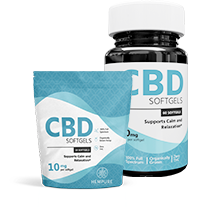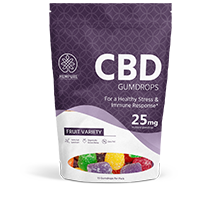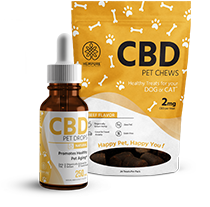The CBD Hormone Guide
Sabina King on Apr 5th 2020
Several processes in the body – if not all – require a state of balance to function in the most optimum way. Think of the acids in your stomach that digest food or the neurotransmitters in your brain that control mood. When these chemicals fall out of balance, you can feel the effects. Hormones work in much the same way. In this guide, we’re going to get into hormones and the excellent work they do, and how you can better support their healthy functioning with CBD.
What are hormones? 
In the simplest terms, hormones are the body’s chemical messengers, secreted by the glands of the endocrine system. Hormones are vital to the normal functioning of your body – these chemicals have the ability to tell different parts of your body what to do, affecting several different functions, including:
- Growth
- Sleep cycles
- Metabolism
- Body temperature
- Sexual function
- Reproduction
- Mood and stress
How do hormones work?
Hormones are primarily used for two forms of communication.
- Endocrine glands can communicate with each other – for instance, one gland signals to the other to modulate how much of a hormone it is releasing.
- Endocrine glands can communicate with target organs.
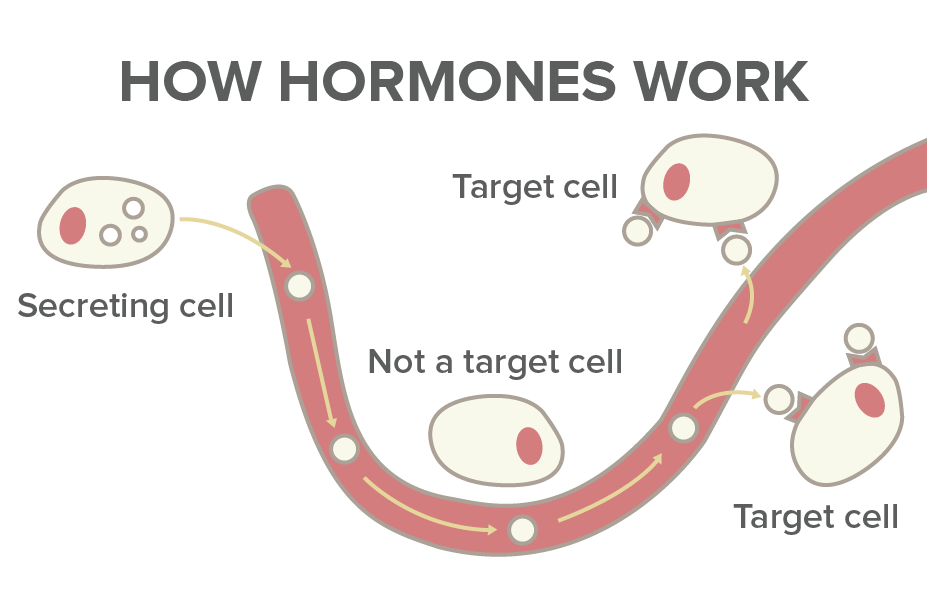
Hormones are present in the bloodstream, which means they can affect functions all over the body on a variety of targets. That’s what makes the endocrine system so important. However, just because it travels all over the body, it doesn’t mean it can interact with everything. Hormones can be thought of as keys, and a target site (either another gland or a target organ) is like a lock. If the key fits the lock, then it works.
Hormones fluctuate all the time. When you eat, the pancreas releases insulin to control the spike in blood sugar. When you’re startled, the adrenal glands release adrenaline to help your muscles prepare to act quickly. In the absence of light, your pineal gland releases melatonin to help you sleep.
The endocrine system is a tightly run machine. One way it regulates itself is through feedback loops where hormone levels are adjusted by constant communication between glands, hormones and target organs. For instance, once a hormone has had an effect on a target organ, a signal is sent back to the gland to halt any further release.
Major endocrine glands and what they do.
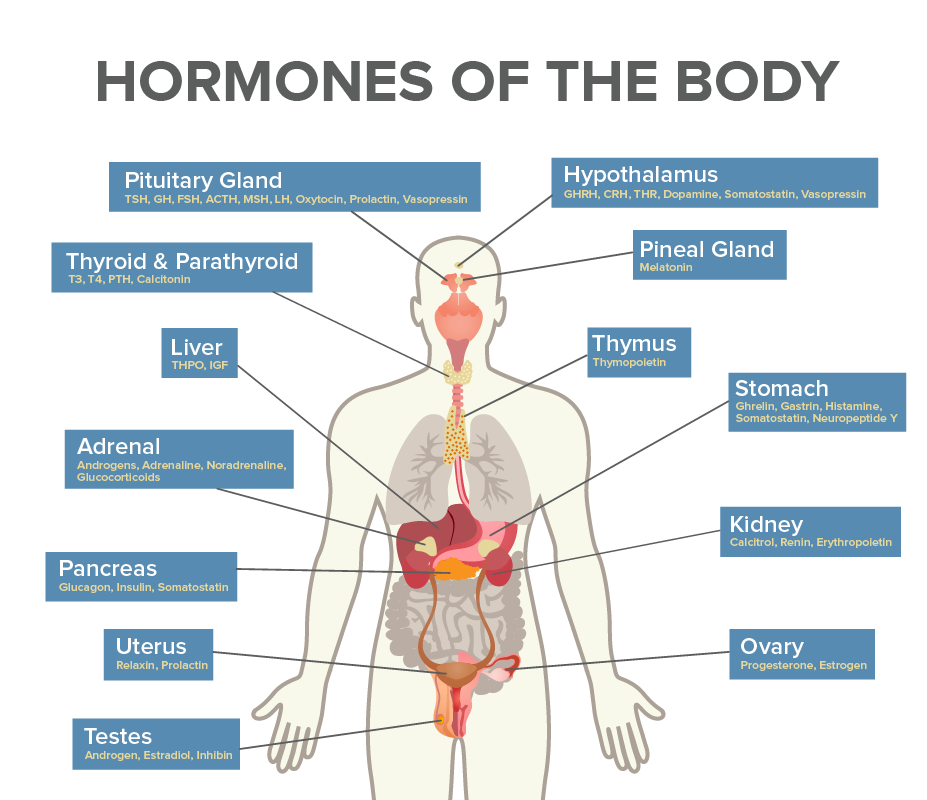
There are several specialized endocrine glands in the body that produce hormones to achieve different effects. Some of the more commonly known ones are:
- Hypothalamus: regulates hunger, mood, sleep, libido.
- Pituitary: the ‘wizard of oz’ gland, controlling other glands.
- Pancreas: produces insulin to use convert food to energy.
- Adrenal glands: produces stress hormones.
- Ovaries: secrete sex hormones.
- Testes: produce testosterone and sperm.
How do hormones get imbalanced?
The endocrine system is a tightly run machine, but it doesn’t always function perfectly. Hormonal imbalances (either too much or too little of a particular hormone) usually occur when the gland responsible for the production of the hormone isn’t working right.
What are the main causes of hormonal imbalance?
Hormonal imbalances can be caused by lifestyle, illness or environmental factors. Causes include:
- Chronic or extreme stress
- Poor diet
- Birth control
- Exposure to EDCs or Endocrine Disrupting Chemicals
- An overactive or underactive thyroid gland
- Overuse of anabolic steroids
- Illnesses
Can CBD help with hormonal imbalances?
CBD or cannabidiol is a hemp-derived compound that has the ability to support the body’s endocannabinoid system or ECS. Like the endocrine system, the endocannabinoid system works with multiple different organs in the body.
Notably, the endocannabinoid system’s primary job is to restore balance to other organ systems. Before we get into whether CBD can help to balance hormones, we’ve first got to understand the link between the endocannabinoid system and the endocrine system.
What is the endocannabinoid system?
The endocannabinoid system is made up of 3 components:
- Endocannabinoids:
- Chemicals produced by the body. These bind with endocannabinoid receptors.
- The two endocannabinoids discovered so far are anandamide and 2-AG.
- Endocannabinoid receptors:
- The ‘locks’ to the endocannabinoid ‘keys’. When endocannabinoids bind with receptor sites, it signals to the ECS to act.
- The two receptors discovered so far are CB1 and CB2.
- Enzymes:
- These break down endocannabinoids once their job is done.
- The two main enzymes are FAAH and MAGL.
These three seemingly simple components are responsible for maintaining homeostasis or perfect balance, and researchers have almost been shocked by how the far-reaching network of endocannabinoid receptors within the human body. It is involved in a variety of different biological functions, particularly those related to stress recovery.[1]
How are the endocannabinoid system and the endocrine system connected?
So far, research has only scratched the surface of the many ways that these two systems interact.
The endocannabinoid system and stress hormones.
We know that CB1 receptors are present in the hypothalamus and pituitary gland, which as mentioned earlier are two major endocrine organs. Research has also proven that the activation of the CB1 receptors in this area can actually regulate endocrine activity. Studies suggest that this is the primary way that the ECS works on stress responses – it has a balancing effect on the release of stress hormones.
The endocannabinoid system and hunger.
The hypothalamus is also the part of the brain that controls food intake and hunger. Research shows that the influence of the endocannabinoid system is surprisingly strong in this area considering the low density of CB1 receptors here.[2] More studies are definitely needed to show whether the ECS controls hunger through these areas of the brain, but research is promising.
Other major endocrine glands such as the thyroid and adrenal gland also seem to have CB1 receptors present.[3][4]
The endocannabinoid system and reproduction. 
The ECS can regulate reproductive processes, fertility and sexual behavior in different ways. One of the ways it does this is by influencing the release of sex hormones.[5] But that’s not all: numerous studies show that CB1 receptors are also present in the male testes and sperm, as well as the female ovaries, uterine tubes, and placenta.[6][7] This suggests that the ECS can exert some effect on fertility and reproduction right at the organ level.[8][9]
Recent findings show that levels of anandamide (AEA) fluctuate through the ovarian cycle in both the hypothalamus and the pituitary gland. This has led some researchers to hypothesize that endocannabinoids may regulate hormonal secretion and sexual behavior. Additionally, there is an abundance of endocannabinoids in the ovary, which means it’s possible that endocannabinoids can regulate the development of the ovary.[10][11][12] The uterus contains the highest level of anandamide (AEA) so far detected in mammalian tissues. [13]
It’s safe to say that nearly all the important steps in the female reproductive cycle – from fertility to pregnancy appear to be tightly regulated by the ECS. Some scientists are hoping that this would lead to more research about the role of the ECS beyond being simply a meta-system.
Male genital tract fluids also contain significant amounts of endocannabinoids, suggesting that these chemicals influence reproduction in the male body as well.[14][15]
How can CBD help hormonal imbalances?
So, we know that the connection between the ECS and endocrine system is strong, but before you start taking CBD oil for hormone imbalance, it’s good to know the specific ways in which CBD can help. So, does CBD help balance hormones? And if yes, which ones? What specific issues can be tackled with CBD? Let’s find out.
CBD and the menstrual cycle
Menstruation is a normal periodical reproductive process that nevertheless can cause extreme pain to many women. There are many reasons why a period can be debilitating to certain people, including extreme cramps, excessive bleeding, and diarrhea. One of the primary causes of the above is the production of irritating chemicals called prostaglandins. While these chemicals aren’t bad guys per se, a lot of the trouble women face during their period could be attributed to prostaglandins. Recent research suggests that CBD can actually block prostaglandin producing enzymes leading to a reduction in pain.[16][17]
How does CBD affect female hormones?
As with any diet plan or workout routine, new compounds can have an impact on your cycle too. You may be wondering – does CBD affect the menstrual cycle? The short answer is – we don’t know yet, but there is no evidence to suggest it. There is some evidence that chronic exposure to THC (the compound in cannabis that gets you ‘high’) can cause disruptions in the menstrual cycle, primarily by blocking ovulation-inducing hormones. [18] If you’re taking CBD oil for menstruation, make sure to choose one that is THC-free.

CBD and PMS
The premenstrual or luteal phase of the menstrual cycle can cause mood swings, irritability, pain and bloating. This has been attributed to the increase in the hormone progesterone and the depletion of estrogen. There is some evidence of a connection between CBD and estrogen and CBD and progesterone. CBD and other cannabinoids may be able to balance these hormones leading to less severe PMS.
CBD oil for menopause
CBD use has skyrocketed among women experiencing menopause. If you didn’t already know, menopause is the process wherein a woman’s estrogen levels plummet, usually around her 40s. While CBD can’t do much to delay or slow menopause, it can provide relief in some of the discomforts of the process. While there hasn’t been much research on CBD and hot flashes, anecdotal evidence suggests that it may work – possibly because of the endocannabinoid system’s effect on temperature regulation. CBD could also help with sleep disturbances during menopause, as well as mood swings.
CBD and cortisol
Cortisol is one of the primary stress hormones along with adrenaline. While this hormone usually gets a bad rep, it’s actually vital for memory processing and metabolism too. It’s only when cortisol levels are high for a prolonged period of time, that it can affect overall mood, health and even weight. Studies have shown that CBD and cortisol levels are connected, and CBD may be able to cause a reduction in cortisol production.[19]
CBD and thyroid
Due to legal and regulatory restrictions, there hasn’t been much research on CBD and thyroid related problems. While we don’t necessarily know that CBD can get to the root of the problem, it is a calming agent and may therefore (like in the case of menopause) relieve some discomfort.
CBD and testosterone

A lot of men planning to take CBD for workout recovery or to boost their fitness routine may be wondering: does CBD lower testosterone? CBD tends to have a balancing effect on testosterone. There hasn’t been much research on just CBD and testosterone, but cannabinoids seem to have the ability to slow down testosterone production, while also slowing the breakdown of testosterone in the liver. Moreover, cortisol and testosterone are inversely connected. High cortisol = low testosterone and vice versa. Since CBD has been linked to lower cortisol levels, it suggests that it may support healthy levels of testosterone. There has also been some interest in the use of CBD for erectile dysfunction. There isn’t much evidence to support this, and studies have given contradictory results.
Incorporate CBD into your life for better overall health
Now that you know how intertwined the systems of your body are with the endocannabinoid system, it’s time to take steps to support your wellbeing!
[1]https://www.ncbi.nlm.nih.gov/pubmed/9881850
[2]https://www.ncbi.nlm.nih.gov/pubmed/9974175
[3]https://www.ncbi.nlm.nih.gov/pubmed/12153749
[4]http://www.ncbi.nlm.nih.gov/pubmed/7556170
[5]https://www.ncbi.nlm.nih.gov/pubmed/16306385
[6]http://www.ncbi.nlm.nih.gov/pubmed/12505702
[7]https://www.ncbi.nlm.nih.gov/pubmed/15562018
[8]https://www.ncbi.nlm.nih.gov/pubmed/15378054
[9]http://www.ncbi.nlm.nih.gov/pubmed/7556170
[10]https://www.ncbi.nlm.nih.gov/pubmed/12505702
[11]https://www.ncbi.nlm.nih.gov/pubmed/11158546
[12]https://www.ncbi.nlm.nih.gov/pubmed/10733937
[13]http://www.ncbi.nlm.nih.gov/pubmed/9108127
[14]https://www.ncbi.nlm.nih.gov/pubmed/8573114
[15]https://www.ncbi.nlm.nih.gov/pubmed/1718258
[16]https://academic.oup.com/humupd/article/21/6/762/628858
[17]https://bpspubs.onlinelibrary.wiley.com/doi/full/10.1111/j.1476-5381.2011.01444.x













